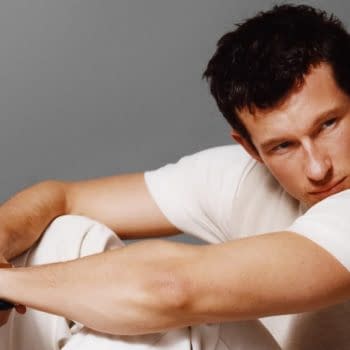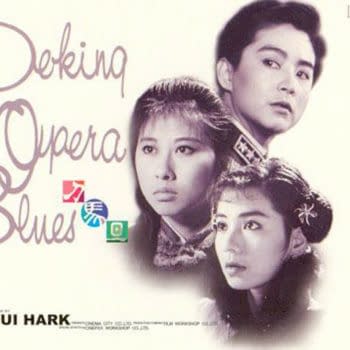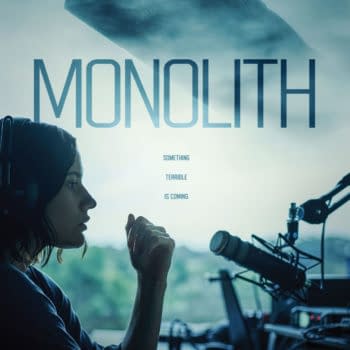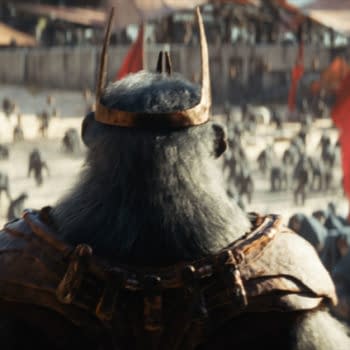Posted in: A24, Movies | Tagged: a24, chungking express, Everything Everywhere All at Once, fallen angels, james wong, Ke Huy Quan, kung fu, michelle yeoh, Stephanie Hsu, wong kar-wai
Everything Everywhere All at Once: Takeaways from a Chinese Viewer
Everything Everywhere All at Once is one of the best movies of 2022, a multi-genre Asian American Science Fiction fantasy that defies categorisiation. It's been embraced by just about everyone as the best multiverse movie of the year, the long-deserved elevation of Michelle Yeoh to iconic international stardom, the long-overdue return of Ke Huy Quan to acting, the continuing ascension of Stephanie Hsu as an up-and-coming star, and a postmodern presentation of the multigenerational Asian American experience. Well, specifically, the Chinese-American experience. Asian American fans of the movie feel seen in their complex, multidimensional, multilayered lives. The film is like the internet, jumping from one topic and theme to another.
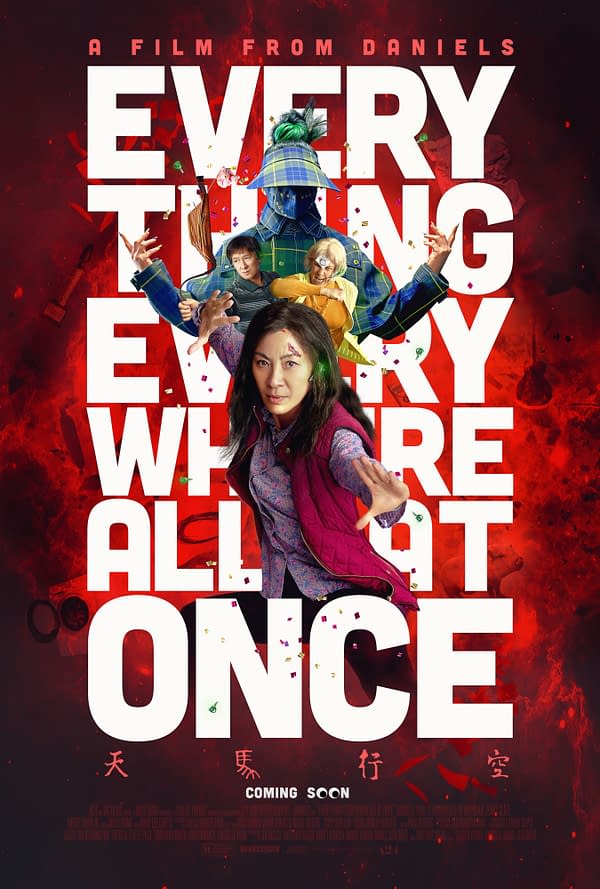
After months of everyone writing and talking about it, we thought it would be fun to have a Chinese viewer's takeaways from Everything Everywhere All at Once. They enjoyed the movie, but their knowledge of Chinese and Asian culture gives them a perspective that many people, including Asian Americans, haven't said out loud. Here's what our friend had to say:
Underneath It All, It's Still An Asian Immigrant Woman's Story
Suppose you remove the multiverse-hopping, the Kung fu fights, and the slapstick comedy. In that case, you're left with a surprisingly ordinary indie movie about an immigrant woman dealing with the disappointments and stresses of her life in America. The plot is about Evelyn coping with her failing laundry business, disappointing dreamer of a husband, demanding father, and her Americanised daughter, coming out as LGBTQ, all while coping with an IRS audit with an equally harried, reputedly racist auditor played by Jamie Lee Curtis. The deepest part of the story is Evelyn facing her daughter Joy's Gen Z sense of despair and nihilism that goes beyond feeling alienated for being LGBTQ. Joy grew up with the rights and freedoms of an American: individuality, freedom of expression, and the right to be LGBTQ without prosecution from the state but still filled with anxiety and despair as if having too much freedom and not knowing what to do with it becomes a brand-new existential problem. Here, her existential crisis is given an epic Science Fictional metaphor, making her a threat to entire universes just because she's mad at her mother. In pop culture, the most helpless people get the most over-the-top power fantasies, and Everything Everywhere All at Once does that in spades. In the end, everyone gets a happy ending from Evelyn letting down her guard. Her default defensive aggression is swapped with just spending time with everyone and befriending them, including IRS auditor Deirdre, who turns out to be sympathetic to her plight but needs to be heard and met halfway.
Still Pushing the Myth that Asian Mothers All Suffer
Asian stories about mothers – be they Chinese, Japanese, Korean, or any other Asian culture – tend to follow a myth of suffering and sacrifice, and Evelyn's is really no different. She's disillusioned and disappointed by her somewhat ineffectual husband, Waymond and, like every Asian heroine in a drama, has to suffer the indignities of being the one to hold everything together. At the same time, ungrateful family members drive her crazy. It's a weird myth of Asian female martyrdom that still persists. That it takes her soft, kindhearted husband to convince her to stop fighting everyone and be nicer is an assertion of male patriarchal wisdom and not particularly feminist.
Asian American Kids are Obsessed with Getting an Apology
One major takeaway in Everything Everywhere All at Once and many Asian American stories is that Asian American kids are obsessed with wanting their immigrant parents to apologise to them. The movie just burns with Joy's – and the audience's – desperate need to hear her mother say sorry for all the bad things they did to them while raising. Evelyn is shown having difficulty expressing her emotions, especially letting Joy know she loves her. Evelyn hasn't been outright abusive to Joy. In fact, Asian American movies and TV shows have shied away from showing how Asian immigrant parents would outright smack the hell out of the kids when they were little. Yet the desire for an apology is so palpable in this movie that you can almost touch it. Those who grew up in Asia don't need their parents to apologise to them and are amazed that Asian Americans are so needy and insecure.
Michelle Yeoh's Accent and the Unavoidable Dialect Dilemma
Michelle Yeoh speaks English, Mandarin, and Cantonese with a Malaysian accent. She's from Malaysia, after all. Only Southeast Asians would notice this. This throws up unfortunate confusion about dialects and accents in the movie. Her father, played by James Wong, speaks Cantonese, suggesting their family came from Hong Kong rather than Mainland China. Yet her husband Wayland speaks only Mandarin because Ke Huy Quan is not a Cantonese speaker. If you know and notice these differences, it can affect your suspension of disbelief. It's not a big dealbreaker, but it's an unfortunate consequence of the diaspora of Chinese immigrants and how hard it is to find Chinese American actors who all speak the same dialect so they can play members of the same family from the same region or Asian country.
The Homage to Wong Kar Wai
The segments where Evelyn lives her life as a glamourous movie star are shot like Wong Kar Wai's classic In the Mood for Love. Waymond showing up at her premiere, looks like Tony Leung Chiu Wai in that movie, dapper in his suit and tie. The production design and colour saturation of those scenes are all deliberately based on the look of In the Mood for Love, along with the step-printed slow-motion moments and their voiceovers about lost opportunities and lost love.
Why do Westerners only remember In the Mood for Love anyway? It's hardly Wong Kar Wai's best movie. Chungking Express was more surprising and influential on Hollywood movies and TV shows during the 1990s as well as Fallen Angels, the thematic darker follow-up. It feels like there's still a fixation on the past and nostalgia in Everything Everywhere All at Once fixating on In the Mood for Love, which is set in the lost 1960s instead of the chaotic, vibrant present of Chungking Express and Fallen Angels, but whatever.
An Oscar for Michelle Yeoh?
Everything Everywhere All at Once is a breakthrough role for Michelle Yeoh, giving her a role that lets her run the gamut of her entire range, from harried housewife to action star to comedian to romantic lead all at once. It shows her as a full actor and film star, not just the exotic kung fu star she was pitched as back in the 1990s. It turns her into the movie icon that Asians already knew she was and might make her a contender for the 2023 Oscars. She would be up against Cate Blancett for Tar, Viola Davis for The Woman King, and perhaps Jennifer Lawrence for Causeway.
Always With the Kung Fu
So a postmodern pastiche movie about the Asian American experience just has to have kung fu in it. At times this feels like Everything Everywhere All at Once is trying perhaps a bit too hard. It's a stereotype that a Chinese genre movie has to have kung fu, but hey, kung fu is fun. It's not the best or most well-choreographed fights, but they try to do some commentary by spoofing the requirements for mystical kung fu powers, like doing things that are ridiculous, dumb, and counterintuitive in order to access special abilities. Videogames certainly inform this movie and the manic OCD attention span of cruising the internet. The dildo joke is a hysterical shock for shock's sake that also reveals the typical Asian man's Freudian fear of castration, homophobia, and fear of anal penetration. Just sayin'.
But the whole story really is about kung fu. "Kung fu" literally means "effort." In the end, Evelyn realises she must put in the psychical, mental, and emotional hard work not to fail, to save her marriage, her daughter, and the multiverse because it's always mothers who have to save the world and keep it together.
If you liked it, you should watch it again and see what else you can pick out of it.
Everything Everywhere All at Once is now on VOD, physical media, and Showtime.




